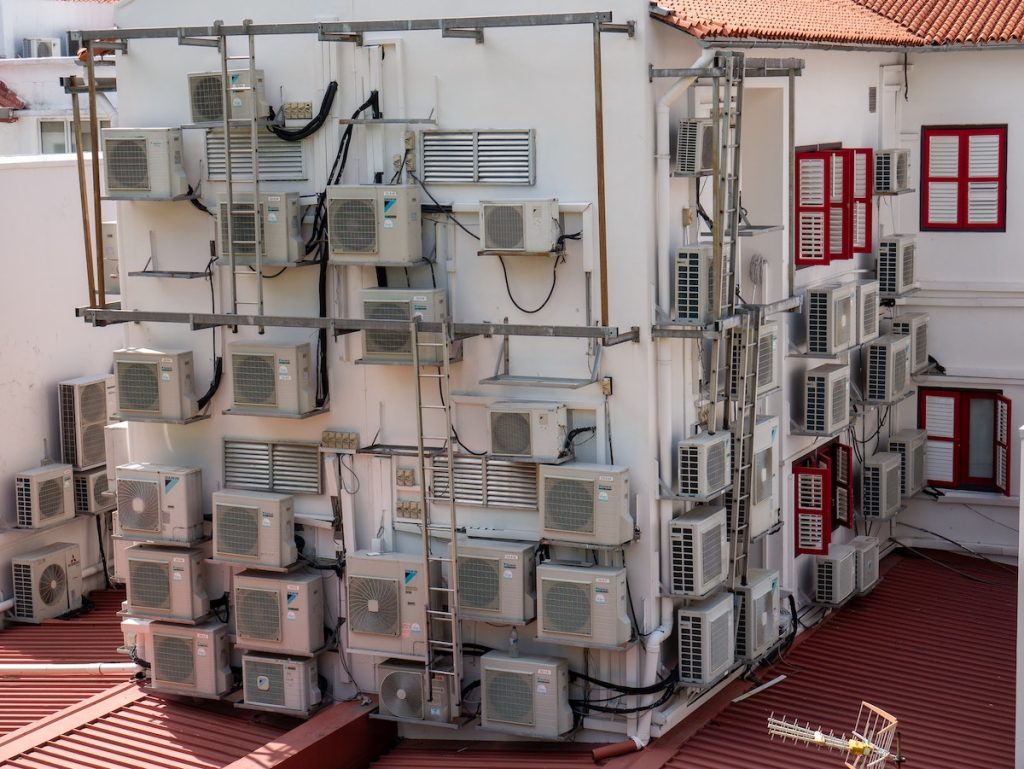When the summer heat is at its peak, a malfunctioning air conditioning system can create a significant disruption in your home comfort. One of the biggest dilemmas homeowners face in such situations is deciding whether to repair the existing system or replace it entirely.
This decision isn’t easy; it involves considering a variety of factors including cost, system age, performance efficiency, and even environmental impact. This comprehensive guide aims to navigate you through this complex decision-making process, providing valuable insights and practical advice on whether to opt for AC repairs or invest in a new system.
Understanding the Lifespan of an AC System
On average, a well-maintained air conditioning system can last between 15 to 20 years. However, factors such as usage patterns, maintenance frequency, and local climate conditions can significantly impact the lifespan of your unit.
Therefore, it’s essential to have a basic understanding of these factors and their effect on your AC’s performance.
Signs Your AC System Needs Attention
Common signs of a malfunctioning AC system include inefficient cooling, unusual noises, frequent cycling, and increased energy bills.
If you start noticing these symptoms, it’s a clear indication that your system needs attention. Prompt professional help can often diagnose and address the problem before it escalates into something more serious.
Cost Analysis: Repairing Vs. Replacing
When your AC system begins to fail, understanding the financial implications of repairing versus replacing is essential in making an informed decision.
Repair Costs
- Repairing an AC system is generally less expensive upfront than replacing the entire system. However, the cost of repairs can vary widely based on the severity of the issue. Minor fixes, such as replacing a capacitor or thermostat, might cost anywhere from $150 to $300. More significant problems, like a damaged compressor, could set you back between $1,000 to $2,500.
- In addition to the immediate repair costs, it’s also important to consider the potential for future breakdowns, especially with older systems. Frequent repairs can add up over time, leading to a cumulative cost that may surpass the price of a new unit.
Replacement Costs
- The cost of replacing an AC system can be substantial. As of my knowledge cutoff in September 2021, a new AC unit’s cost could range from $2,500 to $7,500, depending on the system’s size, brand, efficiency, and the complexity of the installation process. Remember, this is a significant investment, but it’s one that could pay off over the long run.
- Newer systems are generally more energy-efficient, which means they consume less electricity to cool your home, thereby reducing your monthly utility bills. Over time, this energy cost saving can help offset the initial investment in a new AC system. Also, a new system is likely to have fewer maintenance issues and repairs in its early years of operation, which also saves money.
Weighing the Costs
- To decide whether to repair or replace, a good rule of thumb is the “5000 rule.” Multiply the age of your equipment by the repair cost. If the number is more than $5000, then consider replacement. For example, a 10-year-old unit with a $500 repair equals $5000, so it’s better to replace the unit.
- While cost is a major factor in your decision, it’s also essential to consider other factors like the system’s age, its overall condition, and its energy efficiency. Combining all these considerations will help you make an informed decision that makes the most financial sense in the long run.
Environmental Considerations
Beyond costs, it’s also essential to consider the environmental implications of your decision. Older AC systems tend to be less energy-efficient and use refrigerants that are harmful to the ozone layer.
Replacing them with newer models can reduce your environmental footprint, as modern AC units are designed to be more energy-efficient and use eco-friendlier refrigerants.
Assessing the Age and Condition of Your AC System
The age and condition of your AC system play a significant role in the repair vs. replace decision. If your unit is close to or beyond its expected lifespan and has a history of frequent issues, it might be more cost-effective to replace it rather than pouring money into repairs.
The Role of Technological Advancements
Technological advancements in the HVAC industry are another factor to consider. Modern AC systems come with features such as smart home integration, variable speed motors, and improved energy efficiency, which can enhance comfort and save on energy costs.
If your current system is several years old, you may benefit from the advancements offered by newer models.
Conclusion
The decision to repair or replace your AC system can be daunting, but it doesn’t have to be. Understanding your AC system’s lifespan, recognizing signs of trouble, conducting a thorough cost analysis, considering environmental implications, and seeking professional advice, can help make an informed decision that benefits both your comfort and wallet.
Ultimately, it’s about maintaining a comfortable living environment while managing costs and lessening environmental impact.

